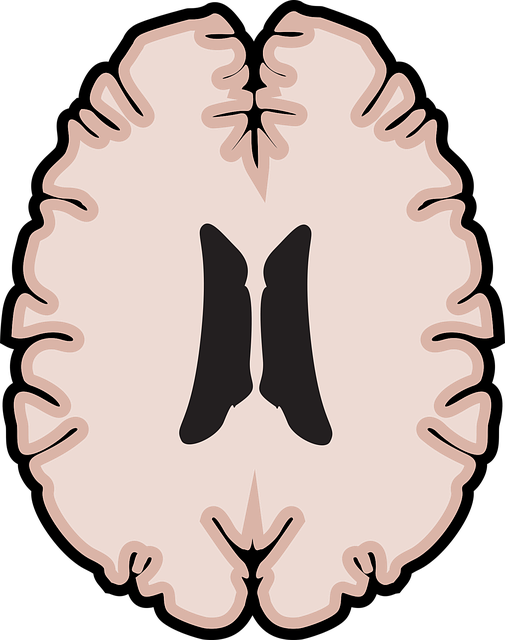Arvada Child Abuse Therapy (ACAT) leverages positive thinking exercises as a powerful tool for enhancing well-being among trauma survivors, particularly children. By addressing negative thought patterns rooted in early experiences, ACAT helps clients develop resilience, reduce risks of mental health issues like depression and anxiety, and foster positive self-perception through techniques such as gratitude journaling, cognitive reframing, mindfulness exercises, and gratitude practices. The therapy's success is measured through clear goal-setting, regular progress evaluations, and adaptability in strategies like incorporating mindfulness meditation and mood management tools based on individual needs. ACAT also extends its reach through community outreach programs and cultural competency training to ensure inclusive and effective care for diverse backgrounds.
In today’s fast-paced world, positive thinking exercises are vital tools for enhancing well-being, especially among children. This article delves into the transformative power of positive thinking and its impact on mental health. We explore strategies for identifying negative thought patterns in kids, offering practical techniques to integrate these exercises into therapy sessions, and provide a step-by-step guide for effective Arvada Child Abuse Therapy. By mastering these skills, professionals can foster resilience and promote healthy development in young individuals.
- Understanding Positive Thinking and Its Impact on Well-being
- Identifying Negative Thought Patterns in Children
- Integrating Positive Thinking Exercises into Therapy Sessions
- Practical Techniques for Cultivating Positivity in Kids
- Measuring Success and Adjusting Strategies for Effective Arvada Child Abuse Therapy
Understanding Positive Thinking and Its Impact on Well-being

Positive thinking is a powerful tool that can significantly impact an individual’s overall well-being. It involves cultivating a mindset focused on optimism and positive interpretations of experiences, even in challenging situations. This simple yet profound shift can lead to numerous benefits for both mental and physical health. Research suggests that positive thinking enhances resilience, boosts self-esteem, and reduces the risk of depression and anxiety disorders.
For individuals who have experienced trauma, such as child abuse, incorporating positive thinking exercises into therapy can be a transformative process. Arvada Child Abuse Therapy, for instance, may utilize techniques to help clients reframe negative thoughts and emotions. This approach supports not only coping skills development but also stress reduction methods and social skills training, ultimately fostering a sense of safety, self-worth, and connection in both personal and social contexts.
Identifying Negative Thought Patterns in Children

Negative thought patterns can take root early in a child’s life, often reflecting their environment and experiences. In Arvada Child Abuse Therapy settings, it’s crucial to identify these patterns as they can significantly impact a child’s emotional well-being and overall mental health. Children exposed to trauma or stress may develop distorted thinking habits, such as all-or-nothing reasoning (“I failed one test, so I’m completely stupid”), catastrophizing (“If this doesn’t go perfect, everything will fall apart”), or personalizing (“Everyone is mad at me because of something I did”).
Recognizing these thought distortions is the first step towards change. Through structured therapy sessions, mental health professionals can teach children tools for mood management and help them challenge negative thoughts with more realistic, balanced perspectives. This process not only aids in Burnout Prevention but also contributes to Mental Illness Stigma Reduction Efforts by promoting healthier thinking patterns from a young age.
Integrating Positive Thinking Exercises into Therapy Sessions

Incorporating positive thinking exercises into therapy sessions can significantly enhance the therapeutic process, especially in contexts like Arvada Child Abuse Therapy. These exercises offer a structured approach to cultivating resilience and coping mechanisms among clients, focusing on reframing negative thoughts and promoting optimistic outlooks. By integrating such practices, therapists facilitate a deeper exploration of emotions and experiences, empowering individuals to navigate challenges more effectively. For instance, techniques such as gratitude journaling or cognitive reframing activities can help children and adolescents develop essential coping skills, enabling them to cope better with traumatic experiences and foster positive self-perception.
The implementation of these exercises is not limited to individual therapy sessions but can also be extended through community outreach program initiatives. Arvada Child Abuse Therapy could collaborate with local schools and healthcare providers to offer workshops on cultivating positive thinking, thereby enhancing the overall well-being of the community. Moreover, providing Healthcare Provider Cultural Competency Training can ensure that therapists and support staff are adept at integrating positive psychology interventions while being sensitive to diverse cultural backgrounds, making therapy more inclusive and effective.
Practical Techniques for Cultivating Positivity in Kids

Teaching children to cultivate positivity is a valuable tool that can shape their mental health and resilience throughout their lives. At Arvada Child Abuse Therapy, we emphasize practical techniques to help kids develop an optimistic mindset. One effective approach is encouraging them to focus on gratitude; this simple act of acknowledging and appreciating what they have can shift their perspective towards the positive aspects of life. Parents and caregivers can guide children to keep a gratitude journal, jotting down a few things they’re thankful for each day, fostering a habit that promotes contentment and reduces stress.
Another strategy is to incorporate mindfulness practices into daily routines. Simple breathing exercises and moment-by-moment awareness teach children how to manage their emotions effectively. These techniques not only enhance emotional intelligence but also serve as burnout prevention strategies for healthcare providers who may encounter high-stress situations, including those related to Anxiety Relief. By modeling and teaching these positive thinking exercises, parents can empower their children to navigate challenges with resilience, ensuring they develop healthy coping mechanisms that extend into adulthood.
Measuring Success and Adjusting Strategies for Effective Arvada Child Abuse Therapy

Measuring success is a vital aspect of Arvada Child Abuse Therapy (ACAT) as it enables therapists to assess the effectiveness of implemented strategies and tailor treatment plans accordingly. This process involves setting clear, achievable goals and regularly evaluating client progress using standardized assessment tools. By tracking improvements in areas like emotional expression, coping skills, and trauma-related symptoms, therapists gain valuable insights into what works best for each individual child.
Adjusting strategies is an ongoing practice within ACAT, ensuring that the approach remains dynamic and responsive to clients’ evolving needs. If a particular intervention fails to produce positive outcomes, therapists can leverage alternative techniques, such as incorporating mindfulness meditation or mood management strategies, alongside crisis intervention guidance. This adaptability is key to fostering a safe and supportive environment where children feel empowered to process and recover from trauma effectively.
Implementing positive thinking exercises as part of Arvada Child Abuse Therapy can significantly enhance well-being outcomes for children. By identifying and addressing negative thought patterns, therapists can foster a more optimistic outlook, boosting resilience and emotional regulation. Integrating these practices into therapy sessions offers practical tools to cultivate positivity in kids, allowing them to navigate challenges with greater confidence and coping mechanisms. Continuous measurement of success enables therapists to adjust strategies effectively, ensuring tailored support for each child’s unique journey towards healing and growth.












